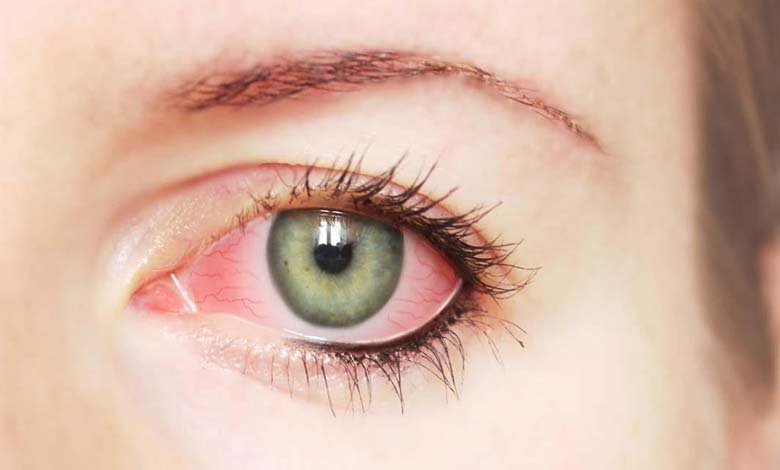Irritation and Infections: How Makeup and Contact Lenses Affect Your Eyes

Makeup and contact lenses are common elements in many people’s daily routines. While they offer aesthetic and practical benefits, improper use can lead to a range of eye problems, from mild irritation to severe infections. In this article, we will explore in detail how makeup and contact lenses can affect your eyes and how you can minimize the associated risks.
-
Hatred of Movement: When Simple Gestures Become a Source of Mental Strain
-
A Simple Trick to Protect Your Eyes from Screen Fatigue
The Impact of Makeup on Eye Health
Eye makeup, such as mascara, eyeliner, and eyeshadow, is one of the most commonly used beauty products. However, these products often contain ingredients that, when they come into contact with the sensitive skin around the eyes or the eye itself, can cause allergic reactions and irritation. Ingredients such as preservatives, fragrances, and colorants can irritate the skin or mucous membranes of the eyes.
Allergic Reactions and Irritation
Makeup products contain chemicals such as preservatives (like methylparaben or propylparaben), pigments, and fragrances that, even in small amounts, can cause irritation. These reactions may manifest as itching, redness, swelling, and a burning sensation. In some cases, irritation can develop into conjunctivitis, which is inflammation of the membrane covering the surface of the eye. This infection can be caused by makeup residues left on the eyelid or eye, or by introducing bacteria through uncleaned brushes or makeup applicators.
Infection Risks
Makeup can also increase the risk of eye infections. When mascara or eyeliner gets too close to the lash line, there is a risk that product particles will enter the eye. This can lead to infections such as blepharitis (inflammation of the eyelids) or more severe infections like keratitis, which affects the cornea of the eye. Additionally, makeup can accumulate bacteria on applicators and products, which are then transferred to the eye, increasing the risk of infection.
How to Minimize Risks?
To minimize the risks of irritation and infection, it is essential to choose makeup products that are suitable for your skin type and the sensitivity of your eyes. Opt for hypoallergenic and fragrance-free products. Make sure to carefully remove your makeup every night using gentle products, such as an oil-based eye makeup remover, to eliminate all traces of makeup and reduce the risk of residues. Lastly, avoid sharing your makeup products and regularly clean your brushes and applicators to prevent bacterial contamination.
The Risks of Contact Lenses on Eyes
Contact lenses are a popular alternative to glasses for many people. However, improper or prolonged use of contact lenses can lead to a variety of eye problems, ranging from dry eyes to severe infections. Contact lenses can interfere with the natural flow of tears on the surface of the eye, leading to dryness, irritation, and discomfort. Moreover, poor hygiene of contact lenses can introduce bacteria and germs into the eye, thus increasing the risk of infection.
Dry Eyes and Discomfort
Contact lenses can cause dry eyes, especially when worn for long hours or if they do not fit the shape of your eye. The lack of moisture can lead to itching, burning, and a gritty feeling in the eyes. Additionally, dry eyes can make the eye more vulnerable to infections, as tears play a crucial role in protecting the eye from pathogens.
-
The Eye: The Most Affected Organ by Rising Temperatures
-
Doctor warns of “refreshing” drink: serious impact on teeth
Infections and Serious Complications
Contact lenses can also increase the risk of eye infections. One of the most common infections associated with lenses is keratitis, an inflammation of the cornea that can occur if bacteria or fungi enter the eye through the lenses. Lenses can also cause conjunctivitis, an infection of the membrane covering the eye. Wearing unsterilized lenses or cleaning them improperly can lead to bacterial and germ buildup, increasing the risk of severe eye diseases.
How to Prevent Risks Associated with Contact Lenses?
To avoid the risks related to contact lenses, it is crucial to follow the wear and maintenance instructions provided by your ophthalmologist. Do not wear your contact lenses longer than recommended, and never sleep with them unless they are specifically designed for overnight use. It is also essential to clean your lenses properly using recommended cleaning solutions and never use tap water or saliva to clean them. Lastly, regularly consult an ophthalmologist to check your eye health and ensure that your lenses are still suitable.
-
Hair, skin: 3 unrecognized beauty benefits of lime trees
-
The Drawbacks of Daily Makeup Use on Women’s Skin
In Summary
Makeup and contact lenses can have a significant impact on the health of your eyes if not used with caution. It is essential to take care of your eyes by choosing suitable products, following proper hygiene practices, and consulting a specialist regularly. Improper use of these products can lead to irritation, infections, and other serious ocular complications. Protect your eyes and ensure you provide them with the best possible care.












